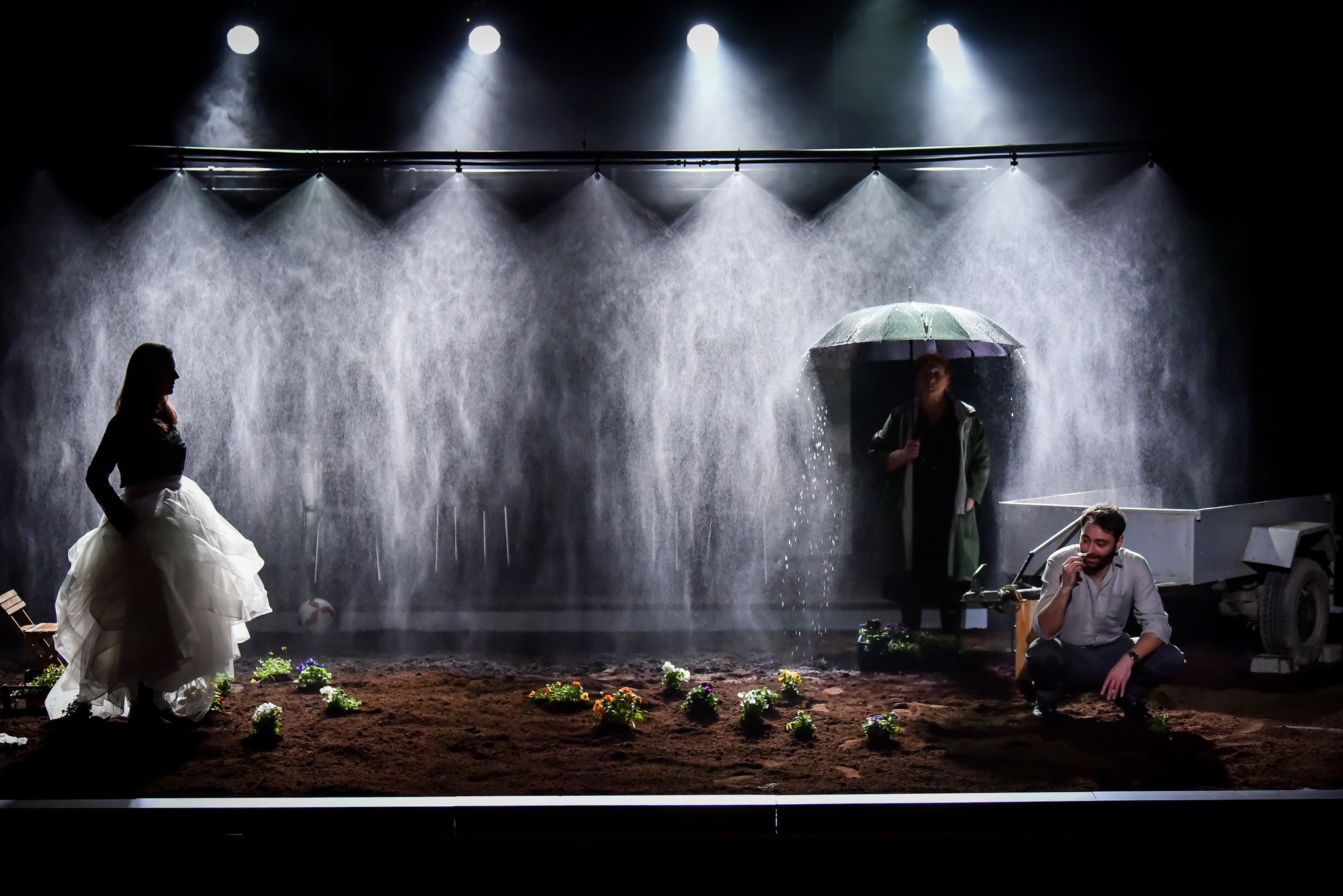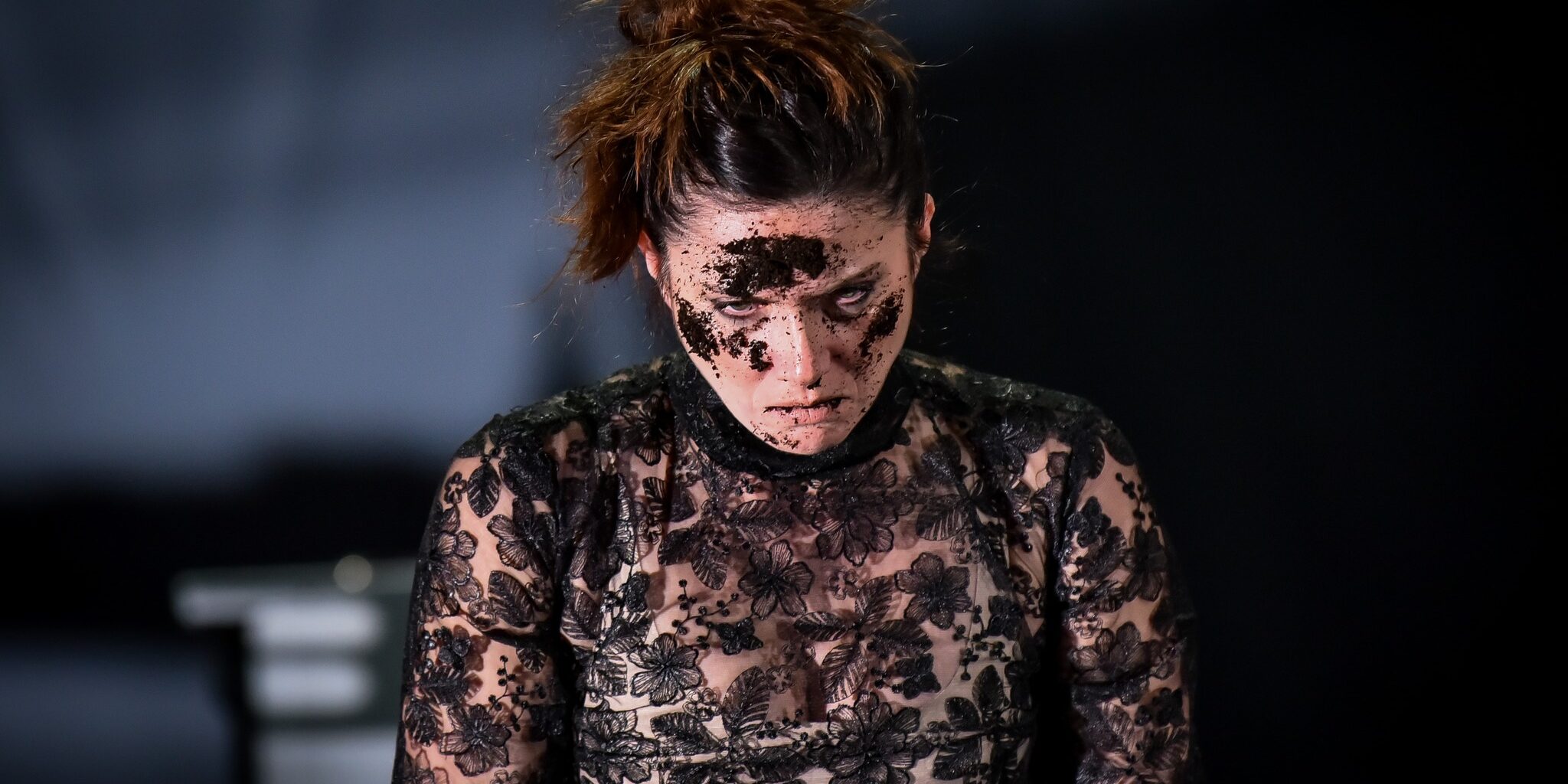Ujvideki Szinhaz, Novi Sad
Most of the recent works of the Croatian theatre director Romano Nikolić fall under the category of authorial projects, observed from an aesthetic point of view, but with a focus on examining social injustices and a broader inclusion of marginalized social groups. His touching 2017 show Pogledajme (Lookatme) is a good example, In this show, Nikolić told the story of two Roma people from Zagreb – played by amateur Roma actors – whose life stories served as metaphors for many others who are disenfranchised.
Nikolić also heads ARTERARIJ, an artistic NGO which aims to democratize the theatre production process and to include minority and stigmatized groups. In collaboration with ARTERARIJ and teatar &TD, Nikolić directed The Tempest in 2022, focusing on asylum seekers who head to the shores of Europe in hope of a better life but end up suffering or even dying along the way.
Nikolić’s most recent performance, which premiered at Ujvideki Szinhaz, the theatre of the Hungarian minority in Novi Sad, has a less urgent feeling when it comes to social context. It is a poetic reflection on Sophocles’ Antigone, here named Antigone – It’s Nice When You Fall Softly. The performance is another authorial project that, this time, aims to explore the wide and numerous semantic implications of the ancient story. According to the information given to the press before the premiere, the director, the dramaturg Dorotea Šušak and the ensemble of the show started their process by discussing the various topics that the play raises and then used the result of the discussion for the text of the show. The end result is connected to Sophocles’ play only in terms of associations as there is no coherent story and the show is more of a compilation of monologues and dialogues.
To be perfectly blunt, the show’s concept is its biggest problem. The director and the dramaturg deal with so many topics raised by Antigone’s story that the show ends up being about everything and about nothing. The actors perform various diverse speeches around the themes of (brace yourself) individual responsibility, the relationship between an individual and community, the grief for lost loved ones, loneliness, position of victimhood and role of the tyrant, the responsibility of witnesses and by-standers, the relationship between lovers, siblings, children and parents, the question of truth and how to articulate it in a hypocritical society, the terrors of war, the toxic competitiveness that results in bloodshed, etc. The list could seemingly go on and on forever while the meaning of such a freestyle approach to these complex topics eludes the audience.
Not even the scenic elements can help us with interpreting this dramaturgical mishmash. The performance itself starts with a long scene where two characters childishly compete but with dead-straight attitudes so they can remind us of Antigone’s brothers who went to war with each other and killed themselves. At the same time in the corner of the stage, another actor slowly brings corpses into a sidecar, one by one, in a mindlessly repetitive manner. When the audience finally starts to feel that this a performance about the pre-story of Sophocles’ play and the horrors of war, the focus shifts to a completely different topic before it shifts again, this time even faster. Among the rare coherent elements of the show are contemporary clothing and contemporary household elements (set design and costumes: Zdravka Ivandija Kirigin), but these elements are either arbitrary as they play no part in the overall concept or, in a more optimistic interpretation, have a banal role of telling us that Antigone’s motives are timeless.

Antigone – It’s Nice When You Fall Softly at Ujvideki Szinhaz
The actors do their best to try to enrich their performances with liveliness and deep concentration. But the problem is that they’re stuck with huge pieces of cerebral text that the director chose to stage in static scenes. As a result, the audience is also deprived of the performative playfulness that the show might have had if it weren’t so text-centered.
A more benevolent critical interpretation of Antigone – It’s Nice When You Fall Soft would be that the director had a very concrete and elaborate concept that was so idiosyncratic that it couldn’t communicate with the audience. A more pessimistic version would be that the performance crumbled under its own ambition to tackle the endless stream of themes that Antigone raises and the author lost his concept altogether. Either way, I am certain in the importance of Romano Nikolić’s inclusive approach to theatre – that is perhaps more visible and better realized in his other performances – and would like to think that Antigone – It’s Nice When You Fall Softly is just a bump in the road.
Credits:
Director: Romano Nikolić//dramaturg: Dorotea Šušak//set design and costumes: Zdravka Ivandija Kirigin//Music: Irena Popović Dragović//Lighting design: Vesna Kolarec
For tickets and further information, visit: uvszinhaz.com
Borisav Matić is a critic and dramaturg from Serbia. He is the Regional Managing Editor at The Theatre Times. He regularly writes about theatre for a range of publications and media.
He’s a member of the feminist collective Rebel Readers with whom he co-edits Bookvica, their platform for literary criticism, and produces literary shows and podcasts. He occasionally works as a dramaturg or a scriptwriter for theatre, TV, radio and other media. He's the administrator of IDEA - the International Drama/Theatre and Education Association.








